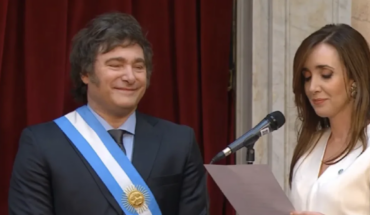After “Mona Lisa” (1986), “The Crying Game” (1992) and until “Interview with the Vampire” (1994), Neil Jordan’s career looked more than promising, but it was diluted between box office failures, films that pas unnoticed and television series such as “Los Borgia” (The Borgias, 2011-2013). “The Widow” (Greta, 2019) is his return to the psychological thriller with all the lyrics, but in the set of common places and a story too trite, you notice these years of ‘estrangement’. Jordan and Ray Wright (“Case 39”) are responsible for this script made, more than anything, for the lucimiento of its two protagonists: Isabelle Huppert and Chloé Grace Moretz, without a doubt, the most enjoyable of this story with many reminiscences to the genre in its versions of the eighties and early nineties, more than anything, when we think of disturbed and obsessed antagonists such as “Fatal Attraction” (Fatal Attraction, 1987) and “Single Woman Seeks” (Single White Female, 1992), who do not leave women very well. Okay, we’ve already given them a clue as to where this argument centered on Frances McCullen (Moretz), a young woman who works as a waitress, is coming to share her friend Erica Penn (Maika Monroe)’s flirty apartment in Manhattan, and tries to recover from the recent his mother’s death, avoiding contact with his father (Colm Feore), who was able to move on with his life.
Returning home on the subway, the girl finds a forgotten-looking purse. Obviously, he never heard of anything suspicious from getting away from anything suspicious, and instead decides not to leave her in lost objects and take her home so that he can return it to her safely. Inside he finds the name and address of Greta Hideg (Huppert) and goes there to be crowned a good Samaritan. Grateful for the gesture, the woman invites her to have a cup of tea and tell her a little about the story of her life. Greta was born and raised in France, where she is now studying her daughter, is a piano teacher, a widow, and of course, she’s dragging her empty nest syndrome. This is how these two protagonists connect: a daughter who misses her mother and vice versa. At first glance, a rather strange relationship, but normal, although this does not please her friend at all. Frances and Greta begin to spend quite a while together, until the young woman discovers that she was not the first to find Hideg’s lost wallet. Although the girl tries to cut off all contact at the root, the lady turns out to be somewhat persistent, and under her constant calls and not-so-fortuous encounters, she hides rather macabre intentions. An unoriginal and at all unexpected twist because who in their right mind comes up with befriending a lonely older woman with a foreign accent?
Hit-Girl doesn’t have these things happen.
Jokes aside, “The Widow” ends up being an accumulation of clichés and predictable moments of those that you see coming several blocks away. The main duo does her best with the material that touches her but, nevertheless, we cannot excuse certain almost hilarious and unlikely moments in the 21st century. Huppert’s exaggerations are legendary, and the character of Stephen Rea (a private detective) is almost an insult to the viewer’s intelligence, who must believe that Hideg’s cunning and skill can outlaw the police who, by the way, are here is here. quite painted. Why can’t law enforcement ever be trusted? We celebrate Hollywood giving a chance to shine an actress like Huppert who always runs on the typical roles for ‘women of a certain age’. The interaction with Moretz has great moments, but the young actress comes out better standing, more than anything, because her character is more believable and much better developed. Jordan manages to catch us with some of his tense games and scenes, which quickly dissipate when we can provide his intentions. In short, “The Widow” is an overly conventional thriller, which could stand well if its plot doesn’t fall into so many easyness, excesses and worn tropes. The formula may have worked in the old days, but despite the ‘modernity’ of certain aspects of the story and a story almost entirely feminine, the structure and its twists are not sustained because they have already been used to the point of exhaustion.
In this note:





